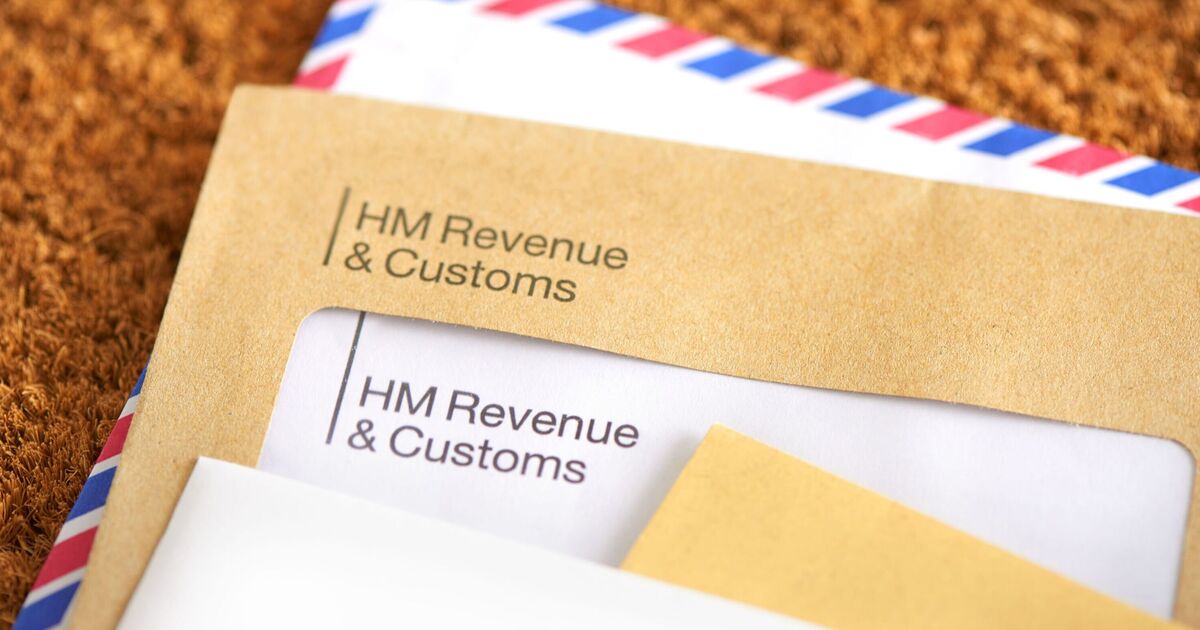
With just weeks until HMRC’s self-assessment tax return deadline, Britons are being urged to remember to claim all the tax relief they’re eligible for.
Claiming tax relief can help cut people’s bills down “significantly”, however, some are “easily forgotten”, an expert has said.
Claire Trott, divisional director of retirement and holistic planning at St. James’s Place, said: “With less than three weeks to go until the Self-Assessment tax return deadline, millions of taxpayers will be scrambling to complete their returns before the end of the month.
“Completing a tax return tends to be a dreaded task, leading many to put it off until the last minute, and in doing so risk leaving out vital information that could result in paying more tax than necessary.”
However, Ms Trott noted: “There are a number of details – such as gift aid payments, and necessary work expenses – that can be easy to forget about when filing a return but can amount to significant tax relief. It’s important that taxpayers take time to include all relevant information to ensure they receive the full tax relief they’re entitled to.”
Business mileage
If you travel for business reasons and your employer doesn’t cover the full allowable cost, you could claim a mileage allowance on your Self-Assessment return for the difference.
Ms Trott explained: “If you drive a car or van for work, you can use simplified expenses to claim 45p off your tax bill for every mile travelled up to 10,000 miles. After that, the amount you can claim is reduced to 25p.
“You need to keep a record of your mileage over the course of the year to claim tax relief on these travel expenses.”
However, Ms Trott noted: “You can’t claim for travel to and from your work, unless it’s a temporary place of work.”
Business clothing expenses
While you’re not allowed to claim the contents of your entire work wardrobe as an allowable expense, there are certain items of clothing you can claim to reduce your self-assessment tax bill at the end of each financial year.
Ms Trott said: “These include work-related uniforms and protective clothing needed for your work, such as overalls or safety boots, that are not provided by your employer. To qualify, they must be necessary, work-specific clothing items.”
Charitable contributions
Higher rate taxpayer can make Gift Aid payments to reduce their tax bill – but they’ll need to be specified in the form, or accountants should be informed of anything that qualifies.
Ms Trott said: “A lot more is paid under Gift Aid than people realise – including subscriptions to organisations like Scouts, Guides, the National Trust, Wildlife Trust, and English Heritage, as well as entry fees for museums and zoos. Donations made through platforms like Facebook Giving also qualify.
“Similarly, if you donate goods to charity shops and sign up to Gift Aid, the charity will send you an annual statement detailing your contributions, allowing you to reclaim the associated Gift Aid in your tax return.”
Ms Trott noted: “It’s well worth keeping a record throughout the year of any payments that are eligible for Gift Aid, as it can soon add up.”
For the tax year to April 2024, as much as £1.57billion of tax relief was given to donors, with around £690million paid in higher rate tax relief, according to GOV.UK.
Pensions relief
Hundreds of thousands of higher and additional taxpayers every year could be forgetting to claim back pension tax relief to the tune of about £250million each year, research by Pension Bee shows.
Anyone paying into either a “relief at source” pension scheme or a personal pension like a SIPP will contribute sums out of net pay, after income tax has been deducted. While basic rate tax relief at 20% will be added automatically by the pension provider, those who have paid tax on their income at the higher rate of 40% or additional rate of 45% will need to claim back the extra 20% or 25% in relief from HMRC.
Gary Smith, financial planning partner and retirement specialist at wealth management firm Evelyn Partners said: “Pension tax relief is the outstanding benefit of the UK’s private pension saving system – it’s one of the main reasons advisers encourage most people who can afford to, to save into a pension. So it’s important that savers who take up this opportunity don’t shoot themselves in the foot by neglecting to collect the great benefits on offer.
“Many savers completing tax returns are so focused on making sure they are not caught out by HMRC for under-reporting taxable income or assets, that they forget to collect pension tax relief they are owed and lose out on a substantial rebate.
“Others have no other reason to get involved in self-assessment but they need to remember that they might have to for this purpose – although it is possible to claim back tax relief without having to complete a tax return.”
Mr Smith continued: “In any case, as a first step, employees should check what sort of system their workplace scheme uses if they aren’t sure. They can specifically ask their HR or the pension provider if all their tax relief has been added to their contributions.
“All personal pension savers meanwhile – whether it is a policy with one of the big insurers, a stakeholder pension or a SIPP – can assume they need to take action to claim back higher or additional rate tax relief.”
Anyone required to file a tax return for the 2023 to 2024 tax year must do so by the January 31, 2025, deadline.
Anyone who misses it could face an initial late filing penalty of £100. This fine increases the longer it’s left, making it vital people act fast.
Myrtle Lloyd, HMRC’s director general for customer services, said: “We know completing your tax return isn’t the most exciting item on your New Year to-do list, but it’s important to file and pay on time to avoid penalties or being charged interest.
“The quickest and easiest way to complete your tax return and pay any tax owed is to use HMRC’s online services – go to GOV.UK and search ‘Self Assessment’ to get started now.”


















